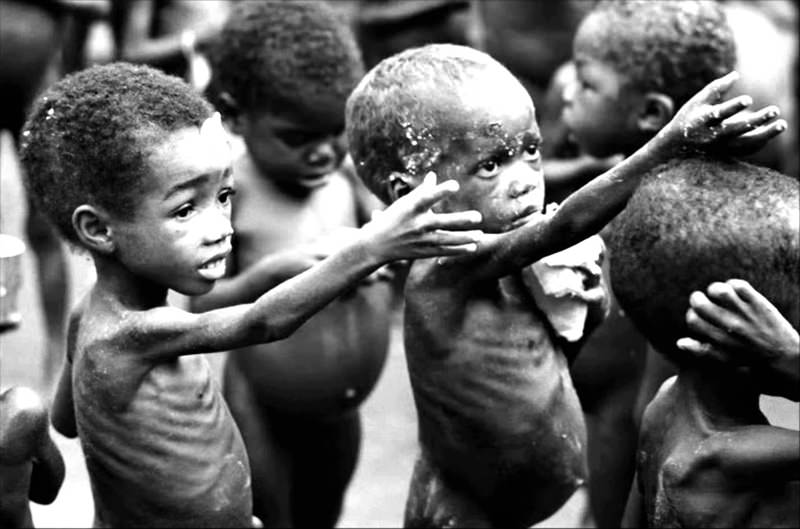JEFF GODWIN DOKI
Dear reader, I have one request to make of you which is that in reading this story you would decide by your own feelings genuinely whether it is connected to contemporary events in our dear country Nigeria or not. Read on.
Upon the forest side in Gboko town, there lived a man and Anthony was name. He was a little man but he had a stout heart and strong limbs. He had lived full five and thirty years in misery. The hut he had built with the mud of clay in the dingy part of the town where he lived with his wife, Rebecca. The pair had but one inmate in their house, an only daughter christened Sarah. Anthony was always a lonely man and his loneliness was that of a man condemned by all the things around him.
Anthony had come to Gboko town with the hope of securing employment or any job that could hold his skin and flesh together. But every office or firm he went to he was turned away on account that he must bring a letter of introduction from a Senator or House of Rep member. Frustrated, Anthony took to the bottle as a way of providing comforting darkness of memory. From the bottle, Anthony graduated to weeds. Taking weeds/marijuana for Anthony was just another way of trying to see beyond the pain of the moment.
One day a wealthy politician arrived Gboko town and bought a wide expanse of land on top of the hill overlooking Anthony’s hut. On this spot, the rich man built his house. The house was an imposing, princely mansion built according to the rules of modern architecture. Either by design or omission, the lavatory suck-away of the rich man’s house directly faced Anthony’s small hut of clay. The full import of this arrangement was that every day Anthony and his small family were condemned to receiving the hot smell of excreta radiating from the suck-away. At first, Anthony found this development a bitter pill to swallow but with the passage of time he adjusted to the new situation and accepted his fate calmly. The poor are rich in patience, you know.
Every day the rich man in his sleekly-styled jeep or other of his numerous expensive SUV cars would speed past Anthony’s house leaving behind his trail a cloud of dust. Every day, the rich man’s eldest daughter would make a brawl in the neighbourhood about which car she would take to school. The rich man also had a son. He was a lad who did no more than spend several hours on the balcony pampering corpulent dogs with corned beef and milk.
One Saturday in the month of October was approaching twilight when Anthony had cause to saunter among the ridges behind his small hut. Apparently, he was in search of vegetables for the family’s evening meal. As Anthony wandered in the garden that evening, he made a shocking discovery. He noticed that the dust bin behind the rich man’s mansion was overflowing with spaghetti, fish and cooked rice. Upon this discovery, Anthony could not contain his anger any longer. He ran back to his hut and fetched a box of matches and a gallon of petrol. Then he set the rich man’s house on fire.
The story of Anthony and the rich man is a profound statement about inequality in society. The story makes the point that we inhabit a cruel world which is built on the structure of inequality. In such a society some (the few) are very rich while others (the many) are poor. In such a society the rich fester in opulence while the poor squirm in poverty. In such a society the wealth of the nation is in the hands of a few kings and queens. In such a society University graduates are roaming the streets in search of jobs while some other University graduates are mixing cement and sand on construction sites. But we do know for sure that if a free society cannot save the poor who are many, then it cannot help the rich who are few. Companion to all these is the fact that the famed Peace researcher, Johan Galtung, has drawn attention to what he grandly calls ‘structural violence’. According to this line of thinking, we experience on a daily basis, some form of violence that is not direct or palpable like war. This kind of structural violence has to do with the social conditions such as pervasive poverty, oppression of the poor by the rich, exclusion, unemployment want, fear, disease, police brutality, intimidation of ordinary people by those in power, monopolization of resources and power by some sections of the society. And this is only a partial list. Is there any hope to remake Nigeria in a way that would be more just and moral? Dear reader, does my story ring a bell?
count | 66

Recent Comments
Mwanchuel Daniel PamMarch 8, 2024 at 11:06 pm
Bob WayasNovember 6, 2023 at 5:30 am
JosephNovember 5, 2023 at 3:47 am